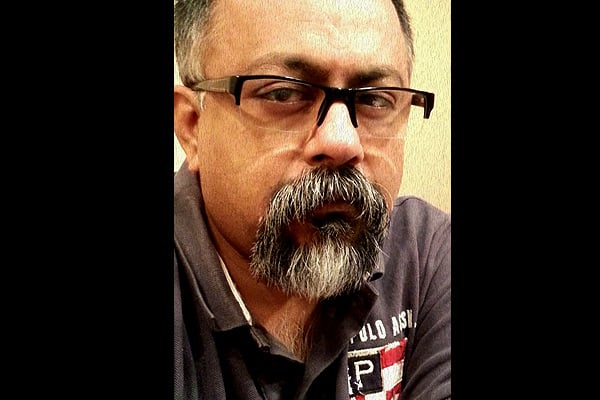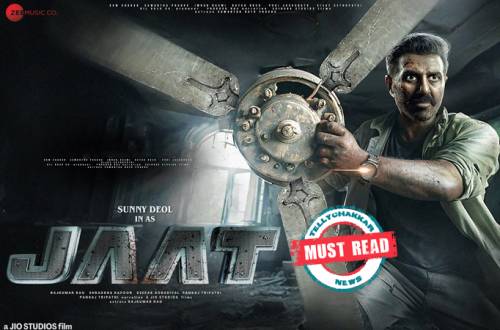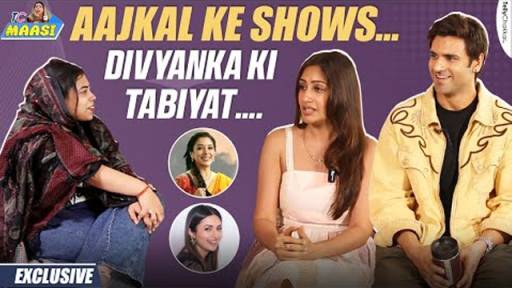Partho Mitra, director of Kyaa Hua Tera Vaada on Sony Entertainment Television, is considered to be one of the finest directors in the field of television, His work has set a landmark for new and upcoming directors. He is also known for his commitment to every project that comes his way. In fact, he is the one who has contributed to the success of every show of Balaji Telefilms.
On an invitation, <em>Tellychakkar</em> visits the sets of <em>Kyaa Hua Tera Vaada</em> and corners the busy Mitra for a snappy interview for its ‘Behind the Lens’ segment. Excerpts:
Submitted by
TellychakkarTeam
on
Sat, 02/23/2013 - 05:45

Partho Mitra, director of Kyaa Hua Tera Vaada on Sony Entertainment Television, is considered to be one of the finest directors in the field of television, His work has set a landmark for new and upcoming directors. He is also known for his commitment to every project that comes his way. In fact, he is the one who has contributed to the success of every show of Balaji Telefilms.
On an invitation, Tellychakkar visits the sets of Kyaa Hua Tera Vaada and corners the busy Mitra for a snappy interview for its ‘Behind the Lens’ segment. Excerpts:
Tell us something about yourself?
(smiles) Since 1992, I am active as a director of television shows; my first project being Shanti on Doordarshan. After that I went on to direct shows like Banegi Apni Baat and Ghar Ek Mandir for Balaji Telefilms. Presently, I am helming Kya Hua Tera Vaada and Bade Acche Lagte Hain for Sony Entertainment Television. Otherwise, I have done numerous daily shows like Kahani Ghar Ghar Kii and Chakravyuh among others.
How is television different from cinema?
After working in this field for last so many years, I have come to learn that at the end of the day both are the same; the only difference is in the format of the two. While films are based on a particular storyline that is to be shown in one frame, television, on the other hand, is based on the episodic format. In this case what happens is that sometimes you begin earnestly by sending your message across but continuation of the same in the later stages becomes quite difficult with the script undergoing several stages midway.
Do you think that creativity is alive on television?
Yes, very much. It is because that so far there have been effective changes which have helped to keep the shows still alive on TV. But, yes there is a black spot. Shows that used to come earlier were better than those being shown currently.
Tell us of your way of working?
(pauses) I have my own style of working and work according to my comfort zone. I look after the show from the scripting time till the editing table; my activity is just a parent bring up his/her child on a day-to-day basis. I shoot only the way I want and look after the whole setup from the cast, their costumes and I even look after the comfort of my entire crew that accompanies me throughout.
Does a director need to be an actor first?
No, not at all. I think a director needs to primarily be an editor because no matter what; even if a director does a good job, it is the editor who has the power to ruin it and vice versa. No matter what role you play on sets, first and foremost important thing is every single person needs to understand the show first and then take the next step. In fact, as a director, my job is to make my actors comfortable and make them understand the feel of every character.
How has television changed so far?
Television still needs to change in terms of mediocrity, because most of the talent somehow is getting wasted. Even today, television is bound with a lot of restrictions which keep the best brains aside when rating is considered.
What is your take on television and films?
(sighs) Television is too congested; there are 60 things airing at the same time, while films, on other hand, have to keep two people (distributor and audience) in mind and work around it. Television is a broader medium and it concentrates more on a fiction perspective, whereas a film is based on non-fiction only. Television is ideally not a medium of fiction because films are seen with greater concentration than TV shows.
What advice would you like to give to new aspiring directors?
Even after becoming successful, never forget to learn something new every single day. You can even learn something from a spot boy or anybody. Attitude should never take over your habit of learning. Be passionate about the work you do because that will help you be alive and happy with what you do.
If not a director what would you have been?
I am passionate about photography. Direction was something which happened due to my interest in cinema. I not only look after direction, but I even look after cinematography and casting as well. So even if I would not be a director, I would definitely be a cameraman.
Your future plans?
(giggles) Well, for the next 4 to 5 years, I will stick to television and later, I plan to shift to films.
Like

0
Love

0
Haha

0
Yay

0
Wow

0
Sad

0
Angry

0




Add new comment